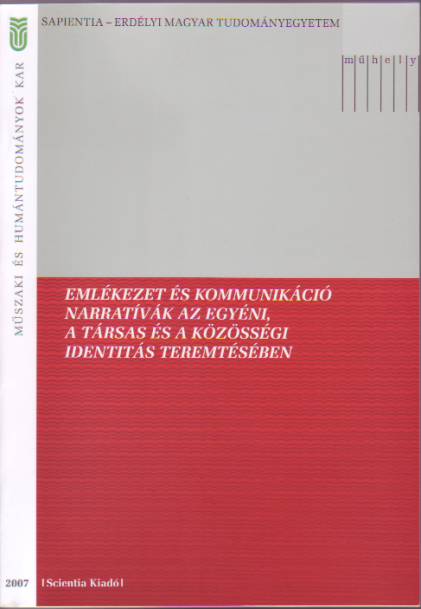
We kindly inform you that, as long as the subject affiliation of our 300.000+ articles is in progress, you might get unsufficient or no results on your third level or second level search. In this case, please broaden your search criteria.

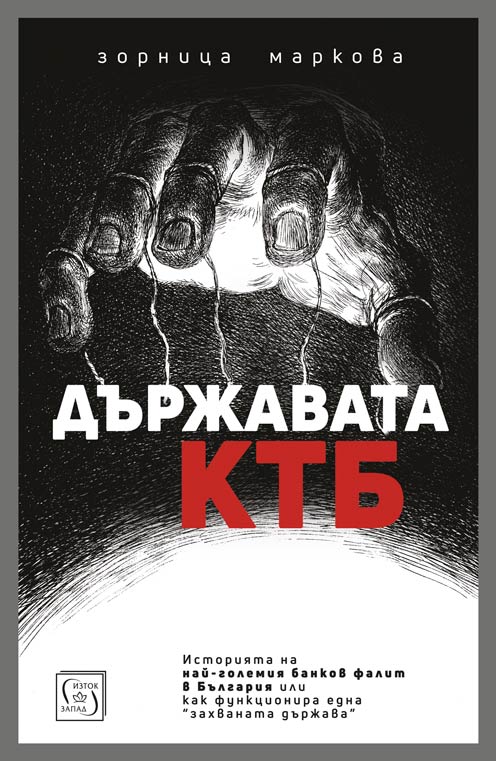
This book is the result of a two-year journalistic investigation that traces the history of Corporate Commercial Bank from its origin to its bankruptcy (1994-2014). The investigation was conducted on the basis of dozens of meetings with direct participants or witnesses of the events, representatives of state structures, political parties, business, regulators. In the process, hundreds of official and informal documents have been analyzed. Access to information by Bulgarian and international organizations has been requested many times. The collected facts, data, documents, and exclusive testimonies included in this book contain for the first time conclusive evidence of political corruption in Bulgaria. The aim of the KTBfiles project is to show the genesis of the "CCB model" (Corporate Commercial Bank model) and the technology of its expansion to magnitude, which pressed all key state institutions to the wall. The book explores the circumstances that made this vicious model possible, as well as the mechanisms for its eradication. This makes the investigation much more comprehensive, multi-layered and important than the chronology of bank bankruptcy, whether it is the largest in Bulgarian history. This qualitative journalistic investigation answers not only to the question #WHO but also to the questions how, why and especially what follows if we stop asking and live permanently with civil indifference and cynicism.
More...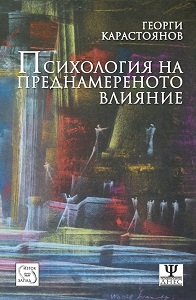
The presented monograph is a result of many years of practical work and research of the author in the sphere of intentional influence in Bulgaria, USA and NATO structures. It would be of interest to psychologists, sociologists, psychological surgeons, PR and image-maker specialist, managers, and anyone who wants to understand the psychological mechanisms of influence - why do we think what we think, why we feel what we feel, why we act the way we do it, and how other people and the media influence us. In fact, the book does not offer ready-made recipes, but an understanding of the process that enables us to protect ourselves from unwanted influences and to be more effective in achieving our goals.
More...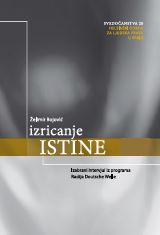
Many books have already been written about how Serbia reacted to the challenge at the beginning of the Third Millennium. In front of the reader is a book that stands out from the crowd because of who, when and what is said in it. On the airwaves of Radio Deutsche Welle, 149 intellectuals, predominantly of Serbian nationality, but also foreigners who deal with Serbia professionally, spoke in 169 interviews about the situation in Serbia mainly after October 5, 2000. By definition, the critical, individual opinion of economists, historians, doctors, diplomats, and artists rounded off the worrying picture of the whole. Speaking independently of each other, the interlocutors of Radio Deutsche Welle reveal the reality of Serbia, which is significantly different from the official reality. Marked as a peaceful revolution, as a new beginning for Serbia, as its historic chance to stop wasting time, with the undivided support of the European Union and the United States of America, October 5, 2000, when the consensual autocrat Slobodan Milošević was removed, was ambiguous. the event. Great hopes were raised; created unrealistic but explainable expectations; the apparent unity of intentions of the main actors was achieved. But, by itself, October 5, 2000 did not represent the balance of what happened in the previous 15 years, and even less a clear projection of Serbia in the future. The attempt made by Prime Minister Zoran Đinđić in this direction was brutally stopped by his murder. Legalism was the new name for the large-state project of the 1990s, which led Serbia to disaster, and the Serbian national and state issue to a dead end. The dismantling of Slobodan Milošević's regime could only occur as a consequence of discontinuity with that policy. … Collected in this book, they represent an important testimony that binds the ruling structures in Serbia. The reality cannot be ignored if there is a political will to change it and to stop the regression of Serbia.
More...
(ANOTHER SERBIA) Every Saturday for a period of two months, from the beginning of April till the end of June 1992, sessions organized by the Belgrade Circle were held at the Student Cultural Centre in Belgrade. At these sessions, ten in all, intellectuals, members of the Belgrade Circle and their quest – distinguished writers, scientists, artists, journalists, film and theatre directors, architects, actors, interpreters – expressed their own views of another, radically different Serbia. In times of anguish and affliction, the meetings, attended by a large assembly of listeners experiencing a kind of moral purification, were nonetheless imbued with a frail hope that there still might be a chance for a turn in events. With a desire to present ideas, opinions and sensations shared by the participants of the Belgrade Circle sessions to a much larger audience, the reading public, and to preserve them, because of their merit, in a more lasting form, discussions of over eighty intellectuals were compiled to form this book. In the meantime, the overwhelming disaster has reached its climax: »The Bosnian War«, still raging with no feasible way out as yet, exploded and blazed up like fire. The Belgrade Circle participants, distressed and abashed at the display of all those real or imagined evil deeds, so eagerly reported by the portentous heralds of death voiced hitherto often deeply hidden and silent feelings and thoughts about their burdensome disgust at the plague gripping and afflicting us all. Each participant contributed in his or her own way – rigorous scientific analysis, artistic susceptibility, eyewitness accounts, or simply. A public-minded desperate wail – to the shaping of one new, public opinion, the one that stirred in that sad Spring of ’92 and rebelled against the general fear, animosity, devastation, extermination, ethnic cleansing, forcible population exchanges... All those responsible and public-minded citizens, holding different political opinions, some members of various political parties, with incomparable personal experiences, varied professional interest and often of »objectionable« national origin, showed, however the will to insert tolerance among the basic principles of a humanized way of fife. But, in spite of the pronounced differences, their common aim, discernable in each and every speech imported to the audience, was to finally establish a community based on simple but as yet still unattainable ideals such as peace, freedom, tolerance and justice in place of degrading political, national and religious exclusiveness. Participants focussed their attention on various aspects of the problem: some analysed the roots of hatred and evil; some indicated the disastrous consequences of irresponsible national myth revivals; others warned of menaces yet to come unless we see reason in time. Some were stern, others witty and others still perhaps too prone to pathos, but they were all deeply concerned, and, as it unfortunately turned out, correct in predicting subsequent events. Therefore, individuals who take no notice of current, official policy and who have for a long time now tenaciously refused to render their talent and knowledge to the needs of the authorities, gathered round a project titled »Another Serbia«. Instigating a state of war and providing alleged erudite justification for the necessity of mutual extermination in the name of some noble goals, vague even to the very massacre executors, must not and cannot be the vocation of anyone who considers him or herself an »intellectual«, or earns a living acting as one. Hence, all session participants had but one desire: to mark out a path that may lead into a more promising future, to another, different, better and happier Serbia. »Another Serbia« soon became the synonym of resistance to fabricated lies, nationalistic madness, criminal war, a fascist holocaust, senseless destruction of villages and cities. Thanks are also due to the daily newspaper »Borba« which regularly reported on the Belgrade Circle Saturday sessions, and published a number of contributions presented there... We hope that the Another Serbia we all aspire to be easily discernable in the collection of essays presented in this book. The reader who hopes to find traces of at least some political program will be gravely disappointed. At present, when politics have poisoned the very soul of so many men of letters and knowledge, and when, among the most violent oppressors, in the ranks of all mortal enemy groups, one finds so many proud bearers of scientific degrees, who may actually be designated as men of unmerited and easily squandered reputation, it has become somewhat indecent to praise »intellectual pursuits«. The Belgrade Circle was, however, founded early in 1992 with the aim of retrieving dignity – another dangerous quality! – to public speech and conceived plans of action for the benefit of truth. We do not take an elitist position and stand indifferently above the crowd. On the contrary, being deeply involved and concerned, we place ourselves in its midst. The Association of Independent intellectuals insists upon its main goal, as declared in the program, namely, to bring together »critically oriented public figured who wish to unite their own civil and intellectual engagements with those of other, basically similarly oriented people«. That is why the Belgrade Circle will continue to »promote ideas, deeds and activities that affirm the values of a democratic, civil and plural society...« The Belgrade Circle will »encourage free and critical thought in all spheres of public life. It will support and help institutions and individuals who resist violence and animosity, and who plead for dialogue and for the survival of culture as the only humanly valid way of life«. Fine speeches? Maybe. Nevertheless, the Belgrade Circle has already, and despite many organizational and financial hardships, as well as ugly and unjust abuse from people who should have been, by the very nature of their vocation, in our ranks had they not knuckled under the burden of a more noble – national to be sure – mission, gained an undeniably high reputation. The words uttered with the aim of promoting »Another Serbia« and presented in this book to serve at testimony to the existence of a number of sensible people, shrewd and brave enough to resist suffocation by overwhelming absurdity, were not the only »weapon« used by Belgrade Circle members. They had also an active part in numerous civil and peace movements and events, thus contributing to the establishment of critical public opinion in Belgrade and Serbia: let us recall, for instance, the sad candles and our wake in the park, with souls colder than the Belgrade frost, while one of the past infernal wars – God, which one was it? – was raging out there somewhere; let us recall the »Black Band«, »Yellow Band«, »Student Protest ‘92«, and our endeavours to bring the people of Hrtkovci (»Srbislavci«) to reason; let us recall our guests from Pljevlja, Montenegro, Bosnia... All the time we were just launching our unhappy and, we believe, noble, though perhaps futile venture the very first participant said: let the Belgrade Circle begin it’s work! We hope that by offering this book to the public we have already come a long way. (INTELLECTUALS AND WAR) This volume, Intellectuals and War, follows on the heels of last year’s publication of Another Serbia. Like the latter, it is the result of the work of the Belgrade Circle. As the reader will recall, Another Serbia is a collection of over eighty talks given by members of this association of independent intellectuals and their guests, during ten of the sessions of the Belgrade Circle held every Saturday from the beginning of April to the end of June 1992. Intellectuals and War brings together some fifty texts, which were presented as part of the series »Intellectuals and War« organized every other week, for ten sessions from the beginning of October 1992 until the end of February 1993. At a time when every call for peace, national tolerance, and liberal democracy was being confronted with scorn, disdain, and open ridicule; at a time, that is, when even the most cautious doubts about the utility of the war, which might deflate the state mythology were being denounced as acts of treason committed by slanderers of the National Idea, the Belgrade Circle organized the thematic series, »Another Serbia« and introduced itself to the domestic public as one of the truly rare associations (not to mention political parties, the few exceptions not withstanding) whose members refused on principle to contribute to the destruction of other nations and the demise of their own. With this series and, particularly, with the publication of our book by the same name, the expression »Another Serbia« became a motto for all those who sooner or later came to see the dangers of the nationalist policies of the past five or more years. Unfortunately, many of the dark forebodings expressed in that first series proved to be true. With tragedies mounting at an alarming rate, many words that then sounded very strong, sometimes even, strident, have become but mild reproaches today. Words that once, only a year ago, were just short of blasphemy, have long since become commonplace in the mildest critical discourse in which almost everyone engages. Yet, in looking through the pages of Another Serbia today, one issue emerges from a number of the contributed works that still has not permeated public consciousness deeply enough and has only with great difficulty found its way into the conscience of those individuals to whom it directly refers. This is, of course, the matter of the responsibility of intellectuals for spreading national intolerance, inflaming hatred, advocating war, and – eventually – for instigating crimes and barbaric destruction and causing the isolation, poverty, denigration and scorn which has since come our way. With this in mind, the Belgrade Circle, as an association of – to repeat – independent intellectuals, decided to organize its second thematic series of discussions around this sensitive and uncomfortable question, which is often protected by taboo. The Belgrade Circle did not act impetuously in calling for an open examination of the role of public-opinion makers in the Yugoslav tragedy. Nor did it do so only after having seen the tragic results of conspicuous blunders by writers, scholars, and religious figures in irresponsible national mythmaking or – worse – in open incitement to war. Such a decision was part of the original motivation guiding the future founders of the Circle. Long before the disintegration of the country and before borders were redrawn, territory occupied and people expelled from their homes, they witnessed a number of their colleagues working as free agents or, more often, as institutional propagandists, dutifully reviving national myths, recounting the victims of pats years as if infatuated with death, reworking the ideology of land and blood and skilfully explaining the need for the South Slavic peoples to »separate« from one another once and for all. Seeing this, it became clear to the future members of the Belgrade Circle that it would not be long before these words were turned into deeds. The common denominator for the some twenty philosophers, sociologists, scientists, artists, and journalists who joined together in the Belgrade Circle was, in fact, the decisive refusal to participate in such undignified activities, which could only end in the horrors of war. In its founding Act, and later in number of public statements and individual appearances by its members, the Circle pointed to the responsibility of the »national intelligentsia« and »national institutions« for war and condemned their abuse of public speech. Although against political trials as a matter of principle, the Belgrade Circle argued in its first public statement that not only should politicians, military leaders, and those directly involved in executing their policies be held accountable for their deeds, but also intellectuals responsible for inciting war and causing crimes against humanity, the destruction of cultural and historical treasures, massive displacement of populations and the exile of numerous distinguished creative figures, and the involuntary flight of educated young people. The fact that it was precisely those individuals who given the nature of their work, should have been among our ranks, but chose instead to put their talents, knowledge, and reputation in the service of legitimising a new collectivism, who were the first to poke fun at the Circle and attack it with angry, even threatening messages made it convincingly clear that this important initiative was directed to the right address. At the crucial moment when the class-based identity of society began to collapse from within, these intellectuals, rather then putting their strength and authority into the democratic enlightenment of an apathetic citizenry actively helped to enthrone another new unifying principle, a new unio mistica which would, this time, be based on an artificially awakened and stimulated national identity. Thanks largely to these efforts, the opportunity to become a society of free individuals who act as autonomous citizens in the political sphere and not as anonymous members of the one and only Class, on Nation was again – and, again for a long time – gambled away. Put simply and crudely: once again, »ideologues«, »clerics«, and »guard dogs« have sold us a bill of goods. Few or the participants in the series »Intellectuals and War« were prepared to say that all »national intellectuals« were guided by evil intentions, hatred toward other peoples, vicious greed, futile craving for fame and honour, or the desire to gain the favour of the new/old rulers. It was clear to our authors that there were honest and intelligent people among these »national intellectuals« who sincerely believed that after the fall of the »old regime« it was more important to resolve the national question than to work for the establishment of parliamentary democracy. Reality – as is most often the case – provided them with a real basis for dissatisfaction. However, just as the framers of the idea of the social revolution before them, they turned to the implementation of the national revolution, without paying attention to the means those contracted do to the job – nurtured as they were in our rich tradition – would more than likely use. Thus, it is hard to resist the conclusion that the war began in words. Any rational observer of the now distant events could reasonably have expected the abbreviated series of exchanges between abstract ideas and concrete acts to turn easily and rapidly into bullets. After all, doesn’t the saying go: the pen is mightier than the sword!? A majority of the authors contributing to this volume, share the belief that if intellectuals – who have since become peace advocates – are now amazed and horrified by the sea of spilled blood, the ruined cities and villages, the rivers of displaced and uprooted people, and the previously unimaginable faschisation, impoverishment, and criminalisation of society, they must – if nothing else – face up to their own professional and moral responsibility for this. But this is a question of individual conscience which no one may or should pas a judgment. Some of the text, however, express the belief that another kind of responsibility – one that presumes more tangible consequences than merely having to confront oneself – must surely fall on the shoulders of that »portrait gallery« of our intellectual guard who have consciously advocated war and misted the people, captivating them with otherworldly messages, promising them the heavenly city, submerging them into the past, offering them dignity through force, and turning them away from the most natural desire to live a better and happier life with Others rather than in isolation from the outside world, imprisoned by self-love. One moment openly, the next moment covertly, they supported the consolidation of an authoritarian and indifferent regime, which would carry out the dirty work for them and for the greater glory of the Nation. They graciously allowed the forces of evil to strike, always ready to put the intellectuals’ most daring plans into action. Sometimes participating directly in the government, but more frequently, acting in the shadows as advisors to the absolute ruler and his priests and in collusion with our Volksgeist, these intellectuals were not prepared to take a stand at those moments when the people appeared to have come to their senses. They introduced even greater discord into the already confused political scene as they entered into the ranks of political parties that had the appearance of becoming democratic. Through both their silence and action, they allowed the uneducated electoral body to surrender itself to the one and only real leader. With these texts in front of us, it is tempting to outline a series of »generic-types«, that is, to construct a certain number of »ideal types« from among our national intellectuals. It is easy to understand those readers who would be happy with a string of unique caricature-like portraits. We have merely to think about all those crazed painters, poets of hearth and home, ominous prophets, patented demystifyers of planetary conspiracies and experts in deconstructing the »new world order«, ethno geneticists and amateur historians who trace their nation’s roots to ancient, even prehistoric times, former Marxists who find solace for their collapsed ideology in the »sweet joy of belonging« to the Nation, indefatigable drafters of geopolitical maps, and journalists and columnists who have persistently presented our unsophisticated readers and television audiences with an up side down picture of history and the world. But for now, let’s just keep these in mind: as, in this brief introduction we cannot even hope to sketch out such a typology, much less, to take on a detailed study of some prominent cases. What we can do is hope that a future systematic examination of the role of intellectuals in the wars we are going through will enable us to arrive at an answer to the question posed by the authors of this volume. They themselves have not been motivated by the ambition to offer an answer now and this motivation could hardly be sad to be common denominator among the various texts, which differ both in genre and in the opinions they present. As in Another Serbia, the contributors to Intellectuals and War have their own views and are alone responsible for their words.
More...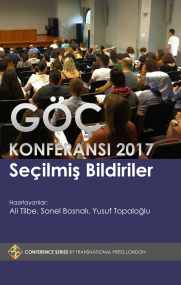
With this book, you're going to have to go to the fifth We present a review of the papers presented at the Migration Conference to our readers. 35 articles addressing the issue of migration from various disciplines and perspectives share a wide range of reviews. This paper-book offers a selection of more than 100 sessions, panels and workshops in total, as well as the 400 papers presented at the fifth migration conference in Athens, which lasted four days. Many participants from more than 60 countries, from economics to anthropology, sociology to medicine, working in the field of migration from a wide range of disciplines, migration and security, gender, public administration, repatriation migration, law, political participation, diyaspora, media, as well as migration culture and summer presented a large number of papers on the subject.
More...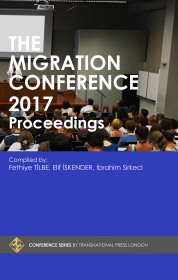
This volume brings together a selection of papers presented at the 5th Migration Conference hosted by Harokopio University Athens, 23-26 August 2017.This selection of papers presented at the conference are only a small segment of unedited contributions while many other papers have already been published in or submitted to edited books and refereed journals. There were a total of about 400 papers presented over 100 parallel sessions and three plenary sessions at Kallithea Campus of Harokopio University, Athens, Greece.The keynote speakers included Oded Stark, Saskia Sassen, Giuseppe Sciortino, Neli Esipova and Yuksel Pazarkaya.
More...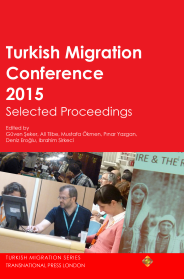
This volume brings together a selection of papers presented at the 3rd Turkish Migration Conference held at Charles University Prague, 25-27 June 2015. This selection of papers presented at the conference are only a small portion of contributions. Many other papers are included in edited books and submitted to refereed journals in due course. There were a total of about 146 papers by over 200 authors presented in 40 parallel sessions and three plenary sessions at Jinonice Campus of Charles University Prague. About a fifth of the sessions at the conference were in Turkish language although the main language was English. Therefore some of the proceedings are in Turkish too.
More...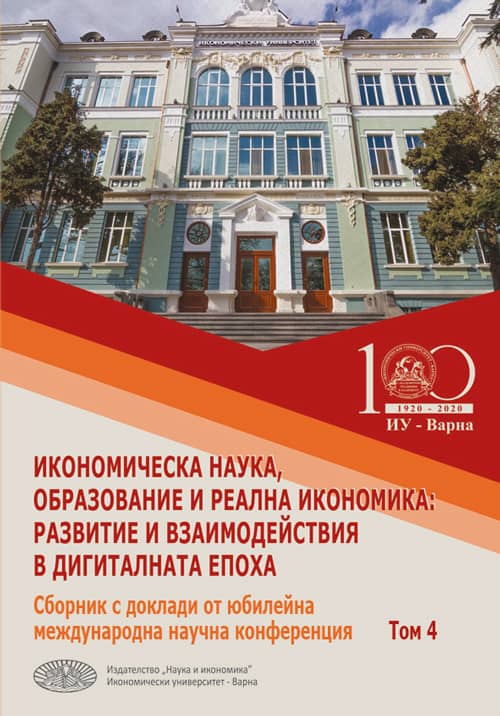
The Jubilee International Scientific Conference on the "Economic Science, Education and the Real Economy: Development and Interactions in the Digital Age", held on 11 – 12 May 2020, is dedicated to the 100th anniversary оf the University of Economics-Varna. Against the background of the cultural and economic rise from the end of the XIX and the beginning of the XX century, on May 14, 1920 the Chamber of Commerce and Industry of Varna decides to open a Higher School of Commerce in the city. This marks the beginning of higher economics education in the country. For the period of its existence the university has trained over 155,000 specialists with successful self-realization in the country and abroad. Today, more than 8,000 Bachelors, Masters and Doctorates from 52 countries study in 27 Bachelor's, 29 Master's and 16 Doctor‟s programs. One hundred years for a Bulgarian university is a remarkable anniversary. Some European universities have a much longer history, but when we give assessments, we must always consider the historical context. From this point of view and within the post-liberation period, 100 years of existence, for a Bulgarian university, is a remarkable achievement. The University of Economics – Varna is one of the oldest universities in Bulgaria and the university is rightly proud of its history. The Jubilee International Scientific Conference is focused on digitalization and all those profound transformations it causes in the economy and society. The theme of the conference has been chosen in the period preceding the outbreak of the global coronary virus pandemic. This is important to note because the current economic situation has changed dramatically. As a result of the state of emergency and the imposed social isolation, the economies all over the world have entered a recession. The business, our social and cultural lives have come to a standstill. The economic crisis that has begun is unprecedented both in its cause and most likely in its scale and scope, and it is currently confronting us with specific economic problems. But we believe in science and medicine, in the human mind and intelligence, and we have no doubt that the epidemic will be brought under control and sooner or later the world will return to normal. Then the fundamental determinants of economic activity shall start to operate, one of which is the ongoing process of digitalization. The present economic situation has confronted us with specific economic problems, but it has also shown in a clear and unequivocal way how important new technologies are in modern life, in particular in the conditions of emergency and social distance. It is in these conditions that all our communication, the opportunity for public institutions to continue with their work, online university and school education, etc. rest on digital technologies today. This conference has also been made possible by modern technology. The crisis, from a certain point of view, has given a new impetus to the digitalization of society. In the context of current events and the explanations given above, the topic of the conference is focused on the long-term development of the economy and society as a whole. The scientific event aroused considerable interest. The conference was attended by 340 scientists, researchers, lecturers, PhD students and students from 23 Bulgarian and 15 foreign universities and research organizations from Germany, Lebanon, Lithuania, Poland, Portugal, Romania, Russia, Slovakia, Serbia, Croatia and Ukraine, as well as representatives of business and various institutions. Plenary reports of the conference have been presented by: Prof. Evgeni Stanimirov PhD - Rector of the University of Economics – Varna, "Quo vadis, education?", Prof. Daniela Bobeva PhD, Institute for Economic Research at BAS, "Costs and Benfits of Euro Adoption in Bulgaria: lessons Learned from the Long Path of Bulgaria to the Euro' Mr. Plamen Rusev PhD, one of the successful alumni of the University of Economics-Varna, Executive Chairman of the Webit Foundation and a member of the Board of Directors of Endeavor Bulgaria, addressed the plenary session with a speech on "Bulgaria – a platform for creating global initiatives." The proceedings covers 263 reports, in 4 volumes. The range of problems in the reports is wide, in line with the idea of the scientific forum: to analyze the manifestation of digitalization not only in business and economy, but its social, institutional and legal aspects, as well. A very important part of the conference is the reports that examine the impact of digitalization on education and science.
More...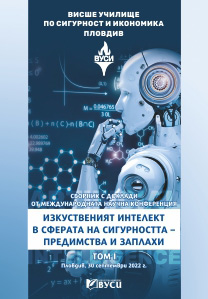
The emergence and development of new information and communication technologies has opened up vast opportunities for people to communicate, create and distribute content through multiple services and platforms, exercising their rights on and off the Internet. They have become the new center of attraction for active information exchange due to their accessibility, sense of community and understanding between its members. The direct communication is both the advantage and the disadvantage of this type of media. Along with their indisputable advantages, their main disadvantage was also discovered - the possibility of being used as a means of disinformation among the public and subsequent manipulation through the spread of so-called „fake news“. This article examines the possibilities of using artificial intelligence systems as a tool in the fight against fake news, summarizing scientific research on the subject. At the same time, the issue of the risks of using artificial intelligence systems to freedom of speech is also discussed.
More...
Artificial intelligence can create texts on a set topic, and similar software products are used by media around the world, as well as by companies that want to create content faster and for less money. Such programs can become a dangerous weapon of misinformation at the hands of people spreading news with false or misleading content, and fake news is becoming an increasingly serious security issue.
More...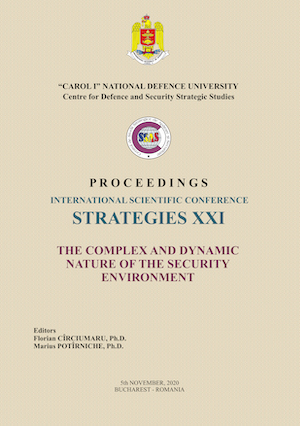
Transmissible infectious diseases are caused by living biological agents that can be transmitted in different ways from the source, causing outbreaks, epidemics or pandemics. The current epidemiological situation, the COVID-19 pandemic is serious due to its rapid transmissibility, strong complications, and the fact that it is an unknown disease. Given its characteristics, similar in parts to a biological agent used as a disabling weapon, in this paper, we will address the current COVID-19 pandemic as an ongoing “situational experiment” in order to simulate a targeted biological attack (on a strategically important locality) with infectious effects that extends nationally and internationally. This type of pandemic has destructive potential through the created health crisis, followed by the economic crisis, aggravated by the information crisis (infodemics) and finally the social crisis with unpredictable consequences
More...
The purpose of this article is to analyze, based on the scientific literature, the main effects on global health security of the spread of disinformation about COVID-19. At the same time, this article illustrates how digital disinformation poses the risk of canceling credible sources, which can lead to mass public confusion and an increased risk of spreading and transmitting the virus. The objective of this article is to provide an overview of the current trends and insights into disinformation activities related to COVID-19/Coronavirus.
More...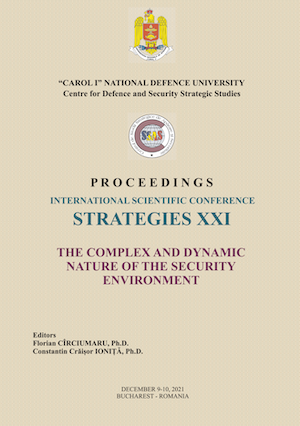
The COVID-19 pandemic has shown that both state structures and citizens have not been prepared to face up a biological threat. The hesitant way in which, at first, action was taken to limit the spread of the new virus led to the emergence of situations that changed the relationship between the state and the population. The trust of a part of the citizens in the state structures has been altered, especially because of the restrictions imposed to limit the spread of the virus. Those who are in direct contact with citizens and who apply these restrictions are the law enforcement and other forces protecting public order and safety. At present, the countries of the world are in a position to think over some strategy meant to restore the confidence of their population in these forces. This distrust, along with conspiracy theories, endangers national and regional security because it is the ground for the proliferation of populism and extremism. The paper presents the sticking points of the relationship between the citizens and the law enforcement and public safety forces that a strategy at the state and regional level should solve in order to restore a level of trust at which security is ensured.
More...
The evolution of cyber spying technology presents new and rising dangers; coupled with the easy justification for use of the on-going terrorist crisis these dangers have now become major threats to the international security system. This article aims to provide analysis of these threats, using the new software Pegasus as a focal point of discussion. Developed by the Israeli ‘cyber-warfare’ company ‘NSO’, this spyware signals a danger not only to security but freedom of the press and journalistic integrity. This paper’s focus will centre on how this software is used for censorship rather than to combat terrorism and will examine the social and political ramifications of said use. As highlight, the case of UAE activist Ahmed Mansoor and his contemporaries who were writing against authoritarian governments will be discussed. This article will urge that strict global legislation is needed to stop the abuse of spyware as a tool of censorship
More...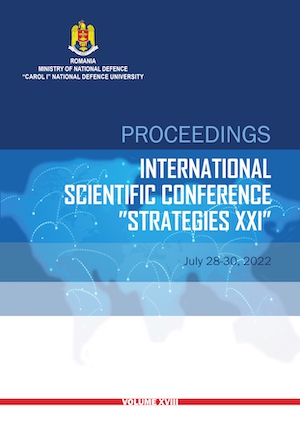
Our paper examines the manner in which public opinion is affected by public communication in a very specific situation. The conflict in Ukraine has been on everyone’s mind for the last three months not only due to its unreasonableness but also due to the Ukrainians mastery of communicating to the public, be it national or international. As the conflict has grown stronger in its intensity so has the public communication on the Ukrainian side which took any given chance to address the international political scene through President Volodymyr Zelenski’s speeches in front of numerous Parliaments. While scrutinising the Ukrainian manner of communicating information and asking for humanitarian, financial and military aid, we will also inspect the manner in which the Russian side communicates. We will look into the effect that these addresses have had on the public opinion. The theoretical background of the paper includes the views on public opinion of GabrielTarde, Pierre Zémor’s definition of public communication as well as Jürgen Habermas’ communicative theory. These theories will assist us in our research to demonstrate which side communicates the better and which has the ability to use cultural references that support their message. Our paper studies an ongoing military conflict,i.e. the data that we have included so far could be interpreted differently later.
More...
The main purpose of this paper is to improve public awareness of the influence campaigns carried out in the Romanian public space, via traditional and internet media that are at odds with national interests. In the context of an ongoing Russian disinformation campaign that frequently spreads disinformation among civil society members and, more concerning, generates hostility between the Romanian citizens and their officials, the most common Russian narratives used in Romania are analyzed, and their misleading aspects are revealed. The paper also covers the resilience approach at national level, as well as at the EU and NATO levels, in order to better understand the instruments and procedures available for lowering risks and managing threats affecting the Romanian society. In light of the current situation in Ukraine, the study presents a series of conclusions regarding how the dissemination of misleading narratives influenced the information environment in Romania.
More...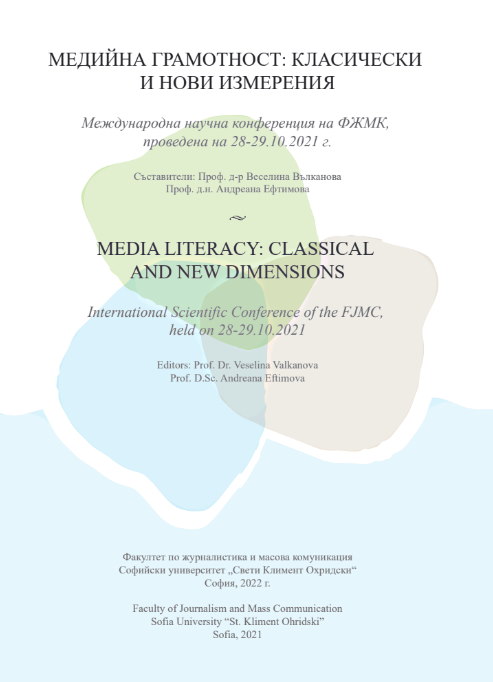
COVID-19 defiantly threw down the gauntlet to established teaching methods around the world. The report examines the impact of the pandemic on global education, drawing on experience and changes in foreign education systems. The study aims to seek answers to questions such as: To what extent has the Bulgarian education system and its participants shown a resource to respond to the crisis?; More benefits or harms bring the urgent transition from in-person to online training?; Does the „step-by-step” reformation have the potential to grow into a new kind of education?”, and many more. The report also considers the prerequisites for the failures/successes of distance learning, including teachers‘ and students‘ levels of digital and media literacy and the role of the media and social networks in asserting or questioning its effectiveness.
More...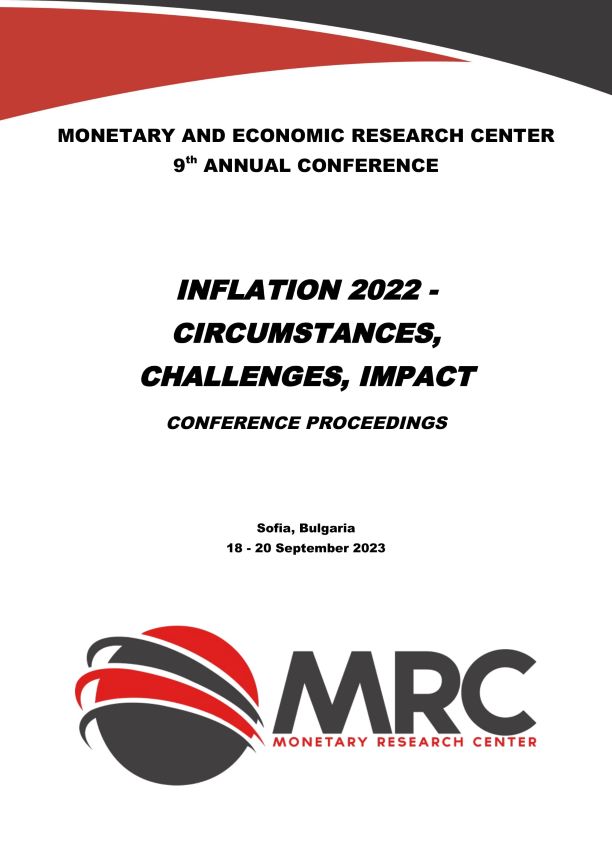
Verbal communication (WOM-Word of Mouth) is a current marketing tool, the main purpose of which is communication and socialization, followed by the promotion and sale of products that takes place face to face between sellers and buyers. With the advent of the Internet, WOM turns into eWOM, that is, electronic word-of-mouth communication that takes place between online sellers and online buyers through social networks and online store pages. Buyers can exchange online messages, experiences, reviews and leave rated reviews for products they have already purchased online. This new mode of eWOM communication has great potential to influence online purchase intentions. In this context, the purpose of this paper is to analyze and investigate the impact of eWOM communication on online shopping intentions. As determinants of online messages, which are transmitted through social networks and websites of online stores, the following are analyzed: quality of messages, credibility of messages, needs and attitudes of buyers to messages, usefulness of messages. messages and acquisition of messages by online shoppers. In this research, the determinants of online messages are derived from the Consumer Attitudes and Needs Acquisition Model (IACM), which is also the research model of this paper, on the basis of which the impact of messages is investigated. on online shopping intentions. Finally, by applying adequate statistical methods, an analysis of two online eWOM communication platforms was made, to determine whether messages transmitted through online stores' Facebook pages have a greater impact on online purchase intentions than broadcast messages. through the means of communication of the websites of the online stores or vice versa. The research results provide useful conclusions for marketers, in terms of adapting their online marketing strategies for successful promotion and sales of products on Facebook and online store websites.
More...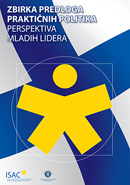
Postojanje javnog servisa predstavlja evropsku praksu, uvedenu zarad očuvanja većeg stepena medijskih sloboda i nepristrasnog informisanja. Evropi nema jedinstvenog modela za upravljanje i finansiranje javnih servisa. Glavni problemi sa kojim se susreću svi javni servisi su održivo finansiranje i uređivačka nezavisnost. Tema ovog predloga praktične politike fokusirana je na finansijsku održivost javnog servisa. Cilj nam je da pružimo uvid u jedan od načina za uštede, u jednom od segmenata poslovanja javnog servisa. Bavićemo se unapređenjem organizacione strukture kroz stvaranje privatno-javnih partnerstava sa lokalnim medijskim stanicama, kao načina racionalizacije sredstava i puta ka podizanju kapaciteta lokalnih medija i produkcija, a takođe i načina za dostizanje veće finansijske održivosti. Srbija se, kao zemlja kandidat za E, nalazi pred otvaranjem poglavlja putem kojih će biti ispregovarani rokovi za implementaciju evropskog zakonodavstva u pravni sistem Srbije, a i putem kojih će se uvažiti određene specifičnosti sa kojima se zemlja suočava. Među 35 poglavlja koja čekaju Srbiju u okviru pregovora o članstvu u E, poglavlje „Informativno društvo i mediji“ se odnosi, između ostalog, i na funkcionisanje javnog servisa. Međunarodni standard je da svaki javni servis mora imati stabilno finansiranje. Kakvo će biti finasiranje zavisi od zakona svake pojedinačne države. Najbolje je da javni servisi imaju sigurne prihode od pretplate. Iako je to ponekad teško osigurati, kada se pređe na finansiranje direktno iz državnih fondova dolazi se do problema mogućeg upliva političkih struktura na odluke unutar javnog servisa i na njegovu uređivačku politiku, ali i do mogućeg ugrožavanja konkurencije na tržištu. Sa druge strane, kada se pređe na finansiranje isključivo od pretplate, čuju se često predlozi da treba ograničiti prihodovanje javnih servisa od marketinga. Kroz ovaj predlog praktične politike želimo da stavimo naglasak na stvaranje održivog i efikasnog javnog servisa, koji bi omogućio uspešno realizovanje obaveza predviđenih Zakonom o javnim servisu, kao i da predložimo na koji način i kroz koje akcije će ove ideje biti ostvarive u predstojećem periodu.
More...